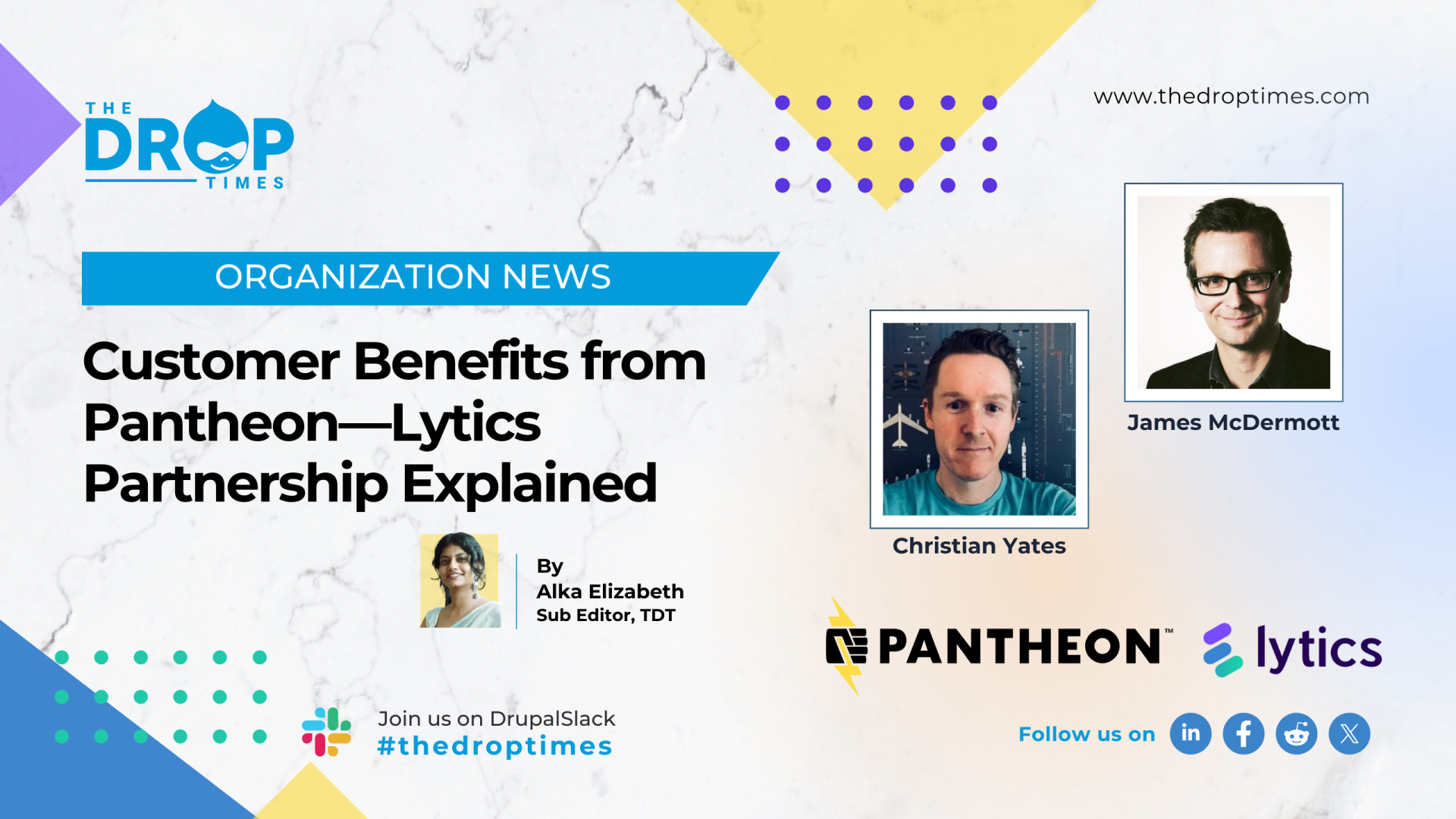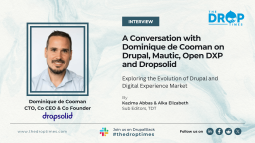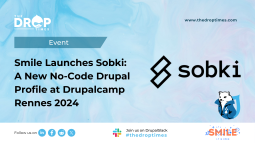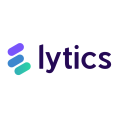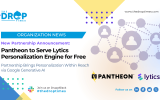Customer Benefits from Pantheon—Lytics Partnership Explained
"A Partnership to help companies transform their use of first-party data, modernize their marketing with Generative AI, and deliver on the promise of personalization."
Pantheon, a leading SaaS-based WebOps platform, has entered into a strategic partnership with Lytics, a premier customer data platform (CDP) fully integrated with Google Cloud. Announced during the Google Cloud Next ‘24 conference, this alliance is designed to democratize access to sophisticated website personalization tools using generative AI, promising a significant shift from the status quo where such capabilities were cumbersome and costly to implement.
The collaboration gives mutual customers free access to Lytics' Personalization Engine. This powerful tool can significantly shorten the typical timeline for deploying web personalization—from several months to just 30 days. This accelerated integration not only bypasses the complexity associated with traditional personalization efforts but also eschews reliance on increasingly obsolete third-party cookies, favoring first-party data and privacy-conscious approaches aligned with Google's Privacy Sandbox.

“Most web teams aspire to personalization, but they are stuck. Complexity has kept it out of scope for many, and in other cases even driven projects off the rails. However the web as a channel is only becoming more vital for growth and customer experience, and we all know that website personalization drives better results. I’m thrilled to give web teams everywhere access to this important lever to hit their goals.”
said Pantheon CEO, Zack Rosen.

Lytics CEO, James McDermott highlighted the future-ready aspect of the partnership, noting that it equips companies to navigate away from third-party cookies and embrace a new era of marketing powered by generative AI. This shift is expected to broaden the adoption of personalization, making it feasible for a wider range of companies to deliver tailored digital content.
“Personalization has been too difficult and something only a few companies have been able to achieve. But the rules of the game are changing; a new generation of technology is rising that can empower much broader adoption of the proven value of getting the right content to the right visitor at the right time.”

Chris Yates, Pantheon’s vice president of products, and James McDermott elaborated on the technical synergies during a detailed discussion with The DropTimes. They explained how the integration aligns with stringent global data privacy regulations, ensuring that personalization efforts are both compliant and secure. The system respects user consent at every touchpoint, integrating seamlessly with consent management tools to maintain a transparent and compliant personalization framework.
James notes that the primary reason behind this partnership is that they wanted to provide companies with a much easier and less risky way to get started with personalization. To address these concerns, Lytics, as a customer data platform, focuses on privacy and compliance by integrating with consent management tools like OneTrust to monitor and capture consent. This enables the platform to collect consent status from various communication channels, such as web, mobile apps, CRM, and email, and add it to the profile of every visitor to a website.
Additionally, Lytics assists its customers in building predefined segments around people who have provided consent, ensuring that marketers and web developers can readily identify who has consented to personalized experiences and who has not. Moreover, Lytics is GDPR compliant.
"What that means is we help companies respond to things like subject access requests. So as you're building up this profile on your consumer, a lot of times consumers want to ask, hey, what data do you have on me? How are you tracking all of my information? Lytics enables the company to be able to respond to those requests and provide transparency around that."
says James.
Lytics's privacy and compliance framework ensures that customers can confidently engage in personalization strategies with the correct level of consent and transparency. James acknowledges that many companies face uncertainties about correctly implementing these practices.
...so with our CDP and with Pantheon, we're making sure that you do this the right way."
Chris Yates, the Vice President of Product of Pantheon, adds to this by saying that the fact that Lytics is fundamentally starting from the CDP area of personalization, rather than kind of the web backward, is huge in terms of data security, as well as kind of the general ease of integration with Drupal and with other content management systems. Also, Pantheon and Lytics are built on a common platform, part of the Google Cloud Platform.
"So the customer can have the entire platform from end to end, both, the parts that are managing the workflow around their webops to the website runtimes themselves, to the personalization layer and the data layer, all in a single platform on GCPs, so they can comply with their own data sovereignty postures and regulatory frameworks."
The discussion also highlighted the significant industry shift away from third-party cookies, with major browsers like Safari, Firefox, and now Chrome phasing them out. This change compels companies to find new ways to use consent-based first-party data to engage with consumers. James emphasizes that Lytics assists its customers in building a first-party identity system. This system allows companies to store consumer IDs and manage relationships directly, similar to a customer relationship management (CRM) system.
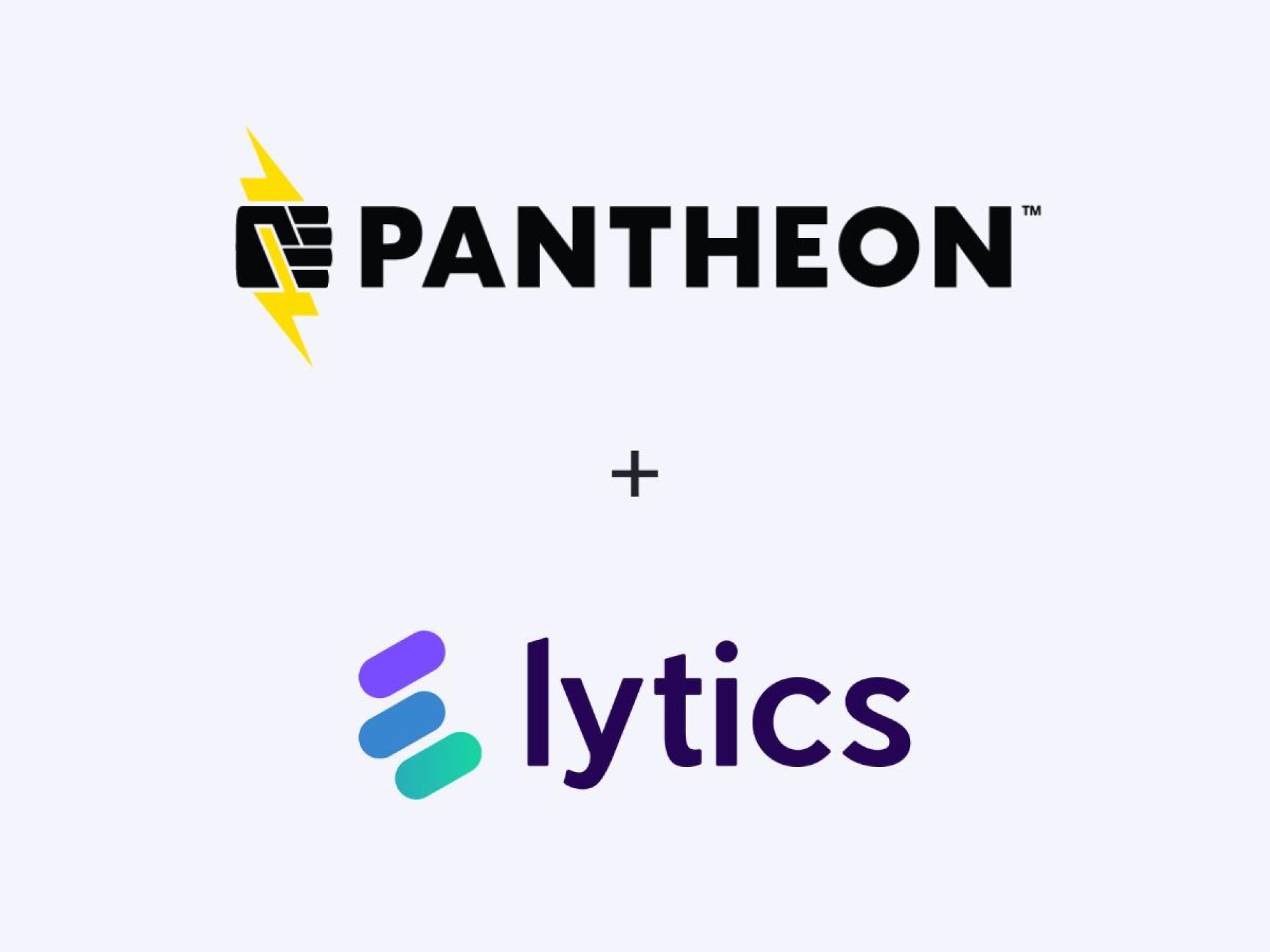
Why is that important?
This system ensures that companies have the necessary identity and context for each user, allowing them to deliver content and offers that are highly relevant to each individual.
"So, identity is really first-party identity and identity resolution is an important foundational capability for companies that are trying to move from third-party cookies to this first-party data world."
Secondly, the transition to a cookie-less future involves companies moving from identity-based targeting to context-based targeting. Google's Privacy Sandbox facilitates this shift by helping companies utilize interest-based audiences focused on topics rather than individual identities.
The partnership between Pantheon and Lytics provides an innovative solution called "interest engines," which utilizes Google Vert. AI to automatically analyze website content, such as text, images, and videos, to create a taxonomy of topics. This enables the system to understand visitor interests without relying on personal identity data. The system starts working immediately, with the ability to build interest profiles even on the first visit, and continually updates based on user interactions over time.
Regarding traffic requirements, the system is designed to be effective even for low-traffic websites, with the capability to start building the interest graph with as few as 500 to 1,000 visitors. Furthermore, the service requires no configuration and automatically crawls the website, making it easy to deploy and use without the need for extensive content taxonomy management.
The model leveraging Google Vert. AI for content analysis focuses on creating a unique proprietary content graph for each individual website. James clarified that the data used for building the topic taxonomy and understanding user interests is specific to each site, without any data sharing or pooling between multiple sites. The utilization of Google's knowledge graph aids in developing these site-specific topic structures.
"One of the advantages of utilizing Google's natural language processing engine and Vertex AI is that the taxonomy of topics and content graph built for your Drupal website aligns with the topics used for interest-based advertising within Google's privacy sandbox and protected Audience API. This consistency allows companies to engage in remarketing based on interests through Google's advertising network in a privacy-centric manner with an identical taxonomy, making us the sole provider offering this feature currently."
proudly notes James.
The conversation also touched upon personalization capabilities and data management within the e-commerce and marketing space. The integration between Pantheon's multi-dev feature and Lytics' personalization engine allows teams to test new changes before production, enhancing the development workflow.
Regarding user data management and compliance, the personal data is stored securely in Lytics' cloud service and is accessible within the Drupal workflow through APIs. Users can request their data through APIs or the UI, adhering to GDPR. The retention period for user data defaults to 90 days but can be customized based on privacy policies. Moreover, data accessibility in Drupal allows content creators and developers to implement personalized rules efficiently. The personalization blocks can be delivered both server-side and client-side, offering flexibility in implementation. The partnership commitment ensures the longevity of services and investments, guaranteeing continued support and availability of the personalization engine even in the long term.
"Our agreement with Pantheon and Lytics underscores our commitment to an open, agile approach in supporting companies and web teams seeking to deliver relevant personalized experiences. Philosophically, we believe this partnership offers superior benefits compared to what Acquia, Adobe, or other proprietary monolithic systems can provide."
concludes Chris and James.
As digital privacy is taking the forefront in discussions, the strategic alliance between Pantheon and Lytics is set to provide a robust platform that not only enhances user engagement through personalized experiences but also offers businesses a compliant path to leverage the latest advancements in AI and data analytics. This partnership marks a significant milestone in the use of technology to foster more meaningful and effective interactions in the digital space.
You can read the full draft of the press release announcing the partnership here.
[Disclosure: This is NOT a paid promotion/advertorial.]
Note: The vision of this web portal is to help promote news and stories around the Drupal community and promote and celebrate the people and organizations in the community. We strive to create and distribute our content based on these content policy. If you see any omission/variation on this please let us know in the comments below and we will try to address the issue as best we can.



